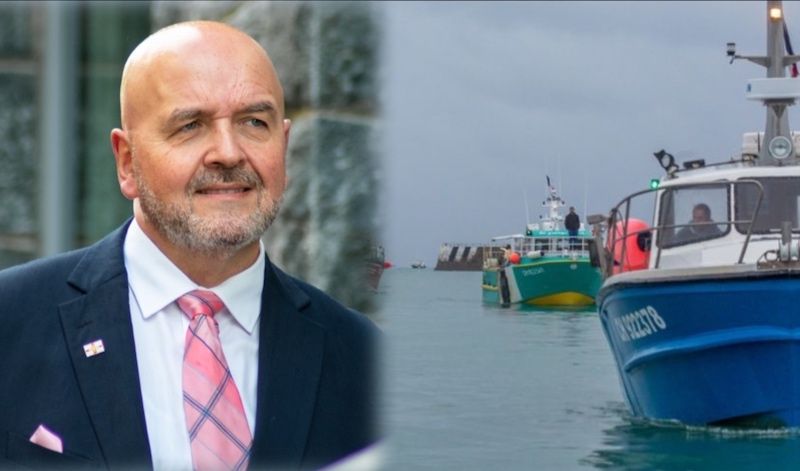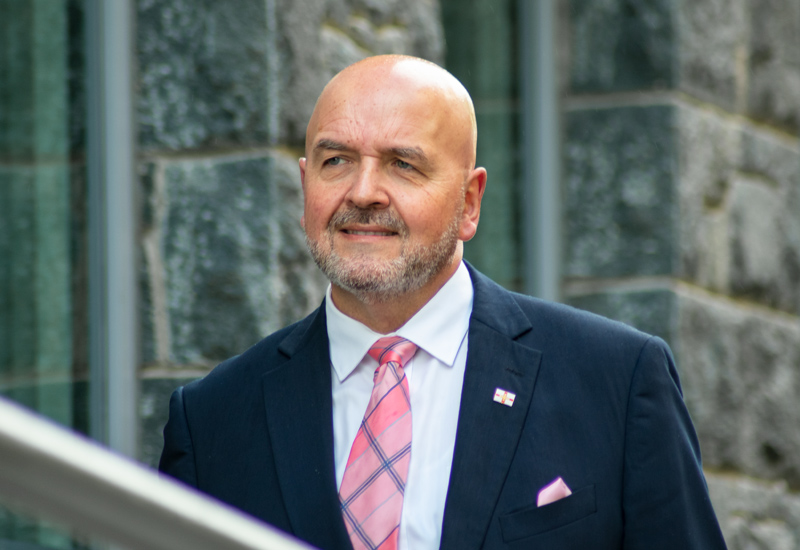


The international dispute around fishing rights in Bailiwick waters has stabilised, according to Guernsey’s lead for external relations and constitutional affairs.
Deputy Jonathan Le Tocq returned from France last week after attending a political summit hosted by the French regional department of Ille-et-Villaine. While the event wasn’t officially held to discuss the ongoing issues surrounding fishing, the infamous topic inevitably came up.
After the UK left the EU officially on 1 January 2021, both the States of Guernsey and Jersey started implementing new fishing terms as devised under the Brexit deal. These terms included the issuing of a set number of licences to fish in Bailiwick waters, as a long as certain criteria were met.
“It’s a bigger issue for them [Jersey] because they had the Bay of Granville agreement,” said Deputy Le Tocq, “but for us we had the status quo.”
The Bay of Granville agreement allowed for shared responsibilities for fishing in and around Jersey waters between France and Jersey. It was superseded by the Brexit trade agreement, giving the States of Jersey more power over who could and could not fish in its three-mile inclusion zone.
Guernsey had no such agreement and the island’s arrangment with French fisherman was built around the London Fisheries Convention. After Brexit, Guernsey seemed to retain its ‘status quo’.

Pictured: 70 French fishing boats protested the new rules in and around Jersey's harbour last year.
“The London Fisheries Convention was the scaffolding around our agreement with France,” continued Deputy Le Tocq. “If we had seen every licence as a new licence, we could’ve had a 160+ and we’ve ended up with 40.
“Every fisherman I’ve spoken to here thinks we’ve come out of this really well.”
Not only has the end result left our fishermen in a similar position to the pre-Brexit era, any disagreements between French and local fishermen seem to have been sorted out ‘in-house’ as it were.
“It seems that our actual fishing communities, and by that I mean the fishermen of Guernsey, Alderney, Sark and particularly the Jersey ones, are getting on practically, side by side, talking with their compatriots in Brittany,” said Deputy Le Tocq.
“The penny has dropped that relying on national governments or the EU to sort out their problems is not a good way of working.”

Pictured: Deputy Le Tocq attended the latest annual summit in Ille-et-Villaine in person.
Deputy Le Tocq said: “These are our seas, whether they are physically managed by Guernsey, Jersey or France, and we want to have effective economic use of the seas and the stocks of the seas and we have to manage them in an environmentally sustainable way.
“We used to be focused on ‘we used to be able to do this, and now we can’t’ but now it’s more about how can we make this brave new world work.”
The saga hasn’t concluded yet and there are still more licence conditions to thrash out, including the types of fishing that’ll be permitted and the types of nets people can use.
But for now, the waters are calmer.
Service industry could be helped by French workers
FOCUS: One year after the French 'invasion'...Where are we now?
Comments
Comments on this story express the views of the commentator only, not Bailiwick Publishing. We are unable to guarantee the accuracy of any of those comments.